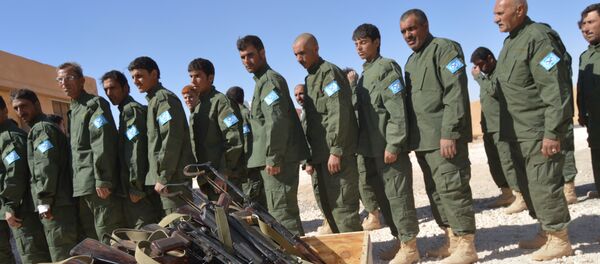Sputnik: How likely are Daesh fighters in Iraq and Syria to switch their allegiance to Al-Qaeda?
David Cook: This is something that, basically, has been going on since the break between ISIS [Daesh] and al-Qaeda. The constant attempts to gain followers are something that can be easily documented, and I think that it’s pretty likely that there will be significant defection. The fact is that many members have ties, either socially or in some cases, otherwise, to al-Qaeda. They are going to go with the group that is tending to win. The major thing that holds them back is that they swore an oath of allegiance to Abu Bakr al-Baghdadi, and that oath of allegiance is not taken lightly by the jihadists, so they have to have a religious dispensation to break it.
Sputnik: What are the differences in goals and otherwise between Daesh and Al-Qaeda?
Sputnik: What are Al-Qaeda’s goals now and how do they attract people?
David Cook: The basic paradigm that has been established by terrorists is that people are attracted through networks. Usually they have some sort of familial connection or social connection. Many may be recruited, for example, through football. Obviously there is also the religious aspect with preachers and so forth. Going back to the issue of the goal of al-Qaeda, I don’t think there is any doubt that al-Qaeda’s goals are grand in nature, in other words, it has similar long-term goals with ISIS [Daesh], but it doesn’t claim a caliphate and their leaders do not claim that level of religious authority. I think that one of the reasons why people may be attracted at this particular point is because of that long-term goal, the willingness to work with a number of different groups. Another difference is that ISIS has tried to subsume groups inside of it and oftentimes has done it by force.This is essentially cannibalizing for groups all over Syria and a lot of other different places, whereas al-Qaeda tended to work with the larger Salafi-jihadi field rather than trying to direct its violence against them.
Sputnik: How unified is al-Qaeda these days and who are its leaders?
Al-Qaeda has been trying to attract Daesh members in a recruitment campaign that started last summer. A second cell was launched in Syria in September and a pro-al-Qaeda news service in Yemen has reported that many Daesh fighters have recently joined it.
While Al-Qaeda vies to recruit fleeing Daesh fighters, there are also growing concerns that Daesh affiliates, known as “governorates of the caliphate”, will offer refuge to Daesh fighters leaving Iraq and Syria.
READ MORE: Swiss Islamic Group Members Face Criminal Charges for Al-Qaeda Propaganda Videos
The views expressed in this article are solely those of David Cook and do not necessarily reflect the official position of Sputnik.




